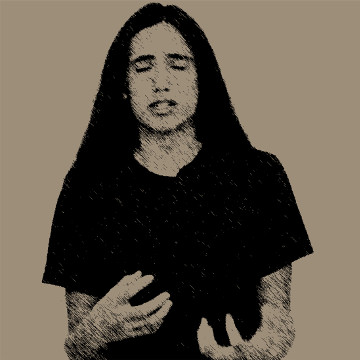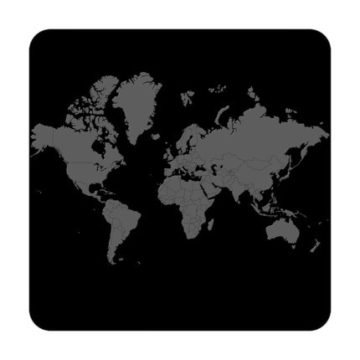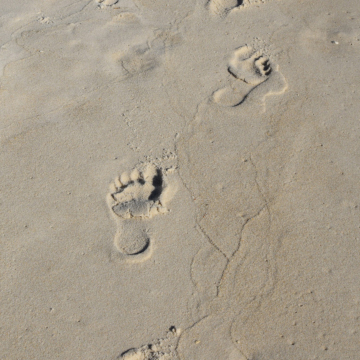From Social Distancing to Environmental Justice in the Time of COVID-19
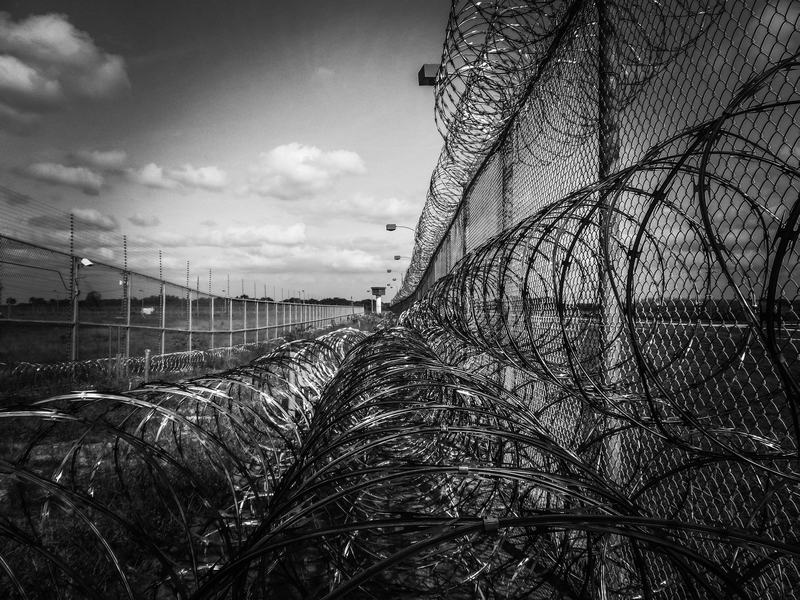
FCI Lompoc is a federal prison located in northern Santa Barbara County. This area is unceded, Indigenous Chumash territory. The Chumash people have lived continuously in this region for at least 14,000 years and, in more recent times, have had to contend with the horrors of conquest, colonization, and genocide. So in the era of COVID-19, we must remember that some of us — Indigenous peoples — are no strangers to biological warfare.
Alexandria Estrada has a relative who is incarcerated at FCI Lompoc. In April 2020 she traveled from Tucscon, Arizona to attend a protest outside the facility that called attention to the deplorable conditions facing the inmates. More than 70% of the 1,162 persons incarcerated there have contracted COVID-19, making the prison the pandemic hotspot in Santa Barbara County, the 9th largest known cluster in the U.S., and the 6th largest known cluster in a site of incarceration. Prisons are COVID-19 hotspots for several reasons: 1) physical distancing, which is required to slow or prevent transmission of the virus, is impossible in prisons, where overcrowding in close quarters is rampant by design; 2) the medical care in prisons and jails is abysmal by design; and 3) an overwhelming number of inmates suffer from pre-existing medical conditions (such as asthma and hypertension), which makes them more vulnerable to disease and illness. Moreover, since the vast majority of prisoners in the U.S. are people of color, this crisis is compounded by the fact that those populations are at higher risk of succumbing to the virus regardless of which side of the prison wall they reside on because they are more likely to suffer from pre-existing health conditions, tend to have poor access to health care, and face significant health disparities more generally in society. Worried for the safety of her relative, Estrada told a reporter, “People are dying, and we don’t know how our family is in there…They won’t tell us.” In my research, I have found prisons to be a particularly acute site of environmental injustices, with widespread water, food, and air contamination. Prisons are also a terrain of inspiring activism and leadership, where incarcerated persons are spearheading movements for environmental justice, human rights, and abolition.

“Social distancing” is the unfortunate term that has been adopted across state agencies and in the mainstream culture as the single most effective way to address the pandemic in its early phases. Fortunately, activists, scholars, and even some elected officials have challenged this term and urged us to revise our language and practice so that we engage in physical distancing and social solidarity instead. “Social distancing” is the problem not the solution. Prisons, jails, ghettos, barrios, and other forms of marginalization and forced isolation are in fact, longstanding examples of social distancing that have placed Indigenous peoples, people of color, immigrants, and other populations in segregated spaces that concentrate poverty, enable repression, and increase health vulnerabilities. Social distancing is the kind of state policy of violence and exclusion that, in the case of FCI Lompoc and other sites of incarceration, has become tantamount to a death sentence for many.
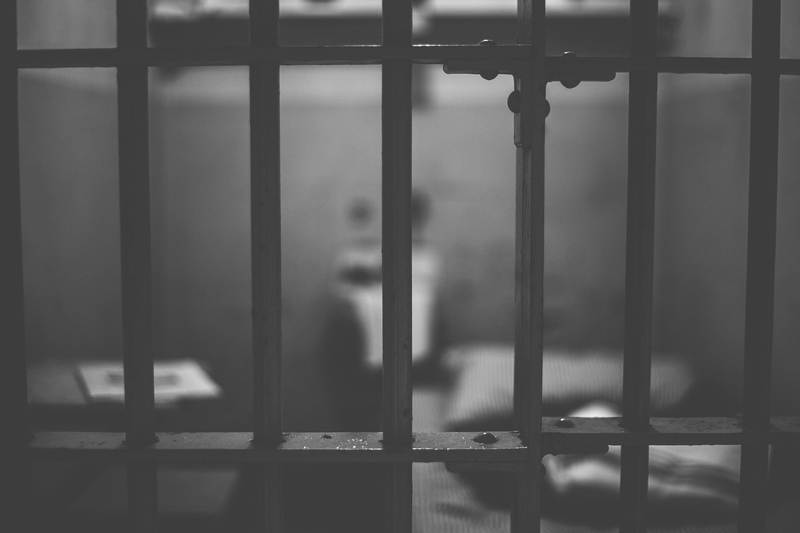
One of the reasons I am hopeful in this time of great crisis and suffering is because prisoner rights and abolitionist movements have experienced a real surge of support and cultural legitimacy as decarceration efforts are bearing fruit in many parts of the world, with prisoners being released in order to prevent or slow down the spread of the pandemic (a realization on the part of governments that prisons and jails are inherently dangerous). Abolitionist movements were well-situated to deal with this crisis, having made the case for decarceration and decriminalization long before this moment. But there is still so much work to be done because the underlying logic of capitalism must be confronted.
Numerous commentators, politicians, and reactionaries have exhorted U.S. residents to risk their own and others’ well-being by urging them to go back to work in order to “open up the economy.” The twisted logic of this narrative is that even though COVID-19 threatens people’s health, a shuttered economy is apparently somehow far worse. My response to that claim is that COVID-19 is certainly serious and horrifying, but we were sick long before it arrived because we have been living under the yoke of capitalism for centuries.
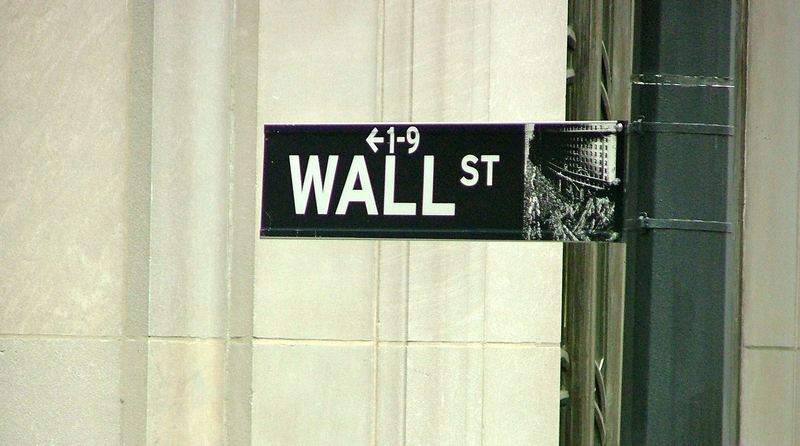
Capitalism is a system that produces and requires ecocide and inherently undermines public health and well-being. Consider these observations: 1) while property crime costs the American public about $18 billion per year, the monetary cost of white-collar crime may exceed $800 billion; 2) in the year 2006, 17,000 people were murdered in street crimes in the U.S., but that same year an estimated 100,000 died from white collar crime, forms of institutional violence not even listed on the government’s Uniform Crime Reports database (Barken and Bryjak, 2013); and 3) the global food industry uses and kills more than 60 billion land animals each year, a number that would have been unthinkable a generation ago and that fails conspicuously to reflect the pain and suffering of our non-human relations ensnared in that machine of mass death (Thornton, 2019).
Capitalism has always been rooted in calculated brutality and exists at odds with the needs of human and environmental health. As an African American whose ancestors were enslaved by this system from the day we arrived on American shores, I vehemently reject the notion that we should continue to give our lives to this unforgiving and immoral system of commerce. And I am not alone. Activist-scholar Jill Nelson was recently arrested for chalking on a boarded up building in New York City the following message: “Trump = Plague” (truer words were never written!) and afterwards stated, “we have a President who is…telling us that, as people of color and older people, we should get out there and die for capitalism. It’s ridiculous!”
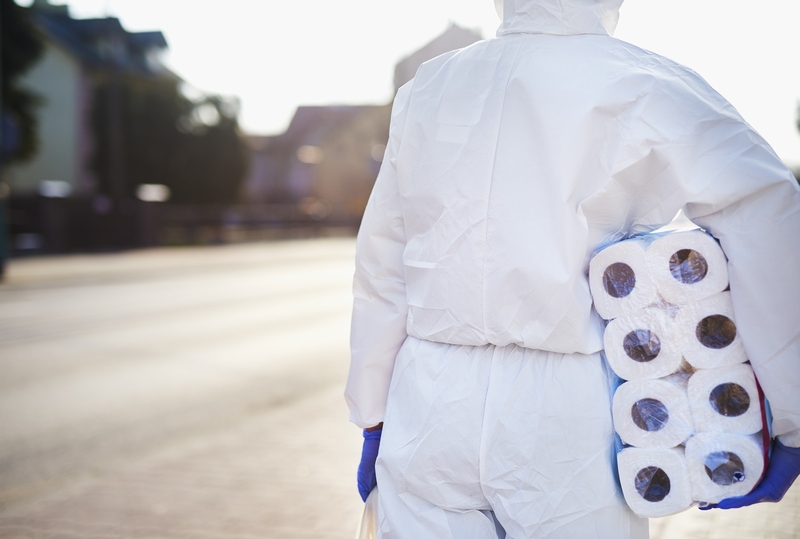
COVID-19 is part of a broader body of emerging infectious diseases (EIDs) that are on the increase globally, the majority of which are zoonotic — meaning they can be transmitted from nonhumans to humans. In other words, during this era of anthropogenic climate change and rising social inequality, the continued violent encroachment of human activity, settlements/invasions, and extractivist activities into rich and diverse ecosystems has placed all of life on earth at greater risk. In that regard, COVID-19 is a particularly acute example of environmental injustice, the patterns and practices of meting out disproportionate ecological harm to those who have contributed the least to the problem, which then reinforces already uneven power relations within human populations and between humans and the more than human world.
Elsewhere I have written about Critical Environmental Justice, a framework for advancing earlier generations of EJ scholarship to address a range of urgent realities. One of the pillars of that framework speaks to my view that we must be extremely cautious about relying on the state to address our needs and to solve the scourge of environmental and climate injustices. I am sympathetic to arguments that, over the generations, key advances in social justice, human and civil rights, and environmental improvements have been achieved because people’s movements have successfully pushed governments to offer those concessions. And while those claims have merit from the perspective of specific temporal and geographic scales, unfortunately, such arguments overlook massive countervailing realities, including the facts that: contemporary global enslavement and trafficking of human beings far outpaces the number at any other time in history; social inequality within and between nations has never been greater; and, present-day anthropogenic climate change and the decline of ecosystems on land and in our oceans are unrivaled in the span of human history.
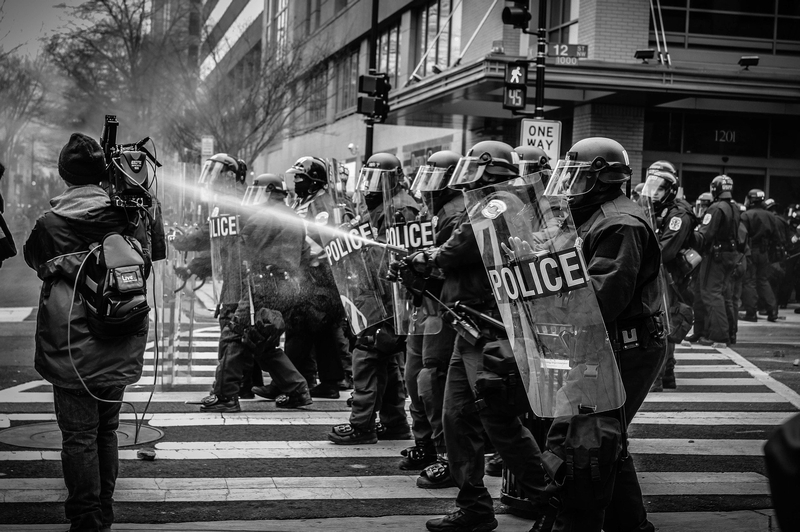
Continued pleading and demands for state intervention are difficult to square with these facts. After all, the state and its corporate partners are the primary drivers of environmental racism in particular and ecological harm more generally. My colleague Michael Goldman has rightly argued that the very things that we need most during this crisis — health care, personal protective equipment, food, etc. — corporations cannot or will not provide anywhere close to the degree needed. I concur and would say the same with regard to states. States providing basic needs have done so grudgingly, under pressure, too little too late, and always with the understanding that such allocations could cease at any time, depending on which way the political winds blow in each election cycle. Following the work of many scholars in the fields of ethnic and American Studies, anarchist political ecology, and the environmental humanities, I view states as apparatuses designed to concentrate power, not share it equitably or pluralistically.
Fortunately, the idea and practice of mutual aid is flourishing around the globe, in so many places where especially disadvantaged people have desperate needs for basic services and resources and where failed states and states of failure have revealed that we must rely on each other for what we need. One of the most promising developments I have seen of late is the call to action among community activists, academics, and many others to embrace an ethic and practice of care, to focus on the need to strengthen and deepen our relationships with one another and our more than human relations. One such group of scholars exhorts us to “value wellbeing and care over performance and productivity together with solidarity and pluralism over individualism and imposed norms and practices.” In my town, people are converging to create a new series of initiatives rooted in the principles and practices of cooperative economics, so that we can provide the services and goods that we all require, without relying exclusively on either the whims of an impersonal and unforgiving market system or the crushing and authoritarian hand of the state. Whether we call it mutual aid or cooperation, multispecies kinship, multispecies justice, cosmopolitics, or flourishing, we insist on interdependence and accountability to support our multiscalar and interlinked commons and life support systems.
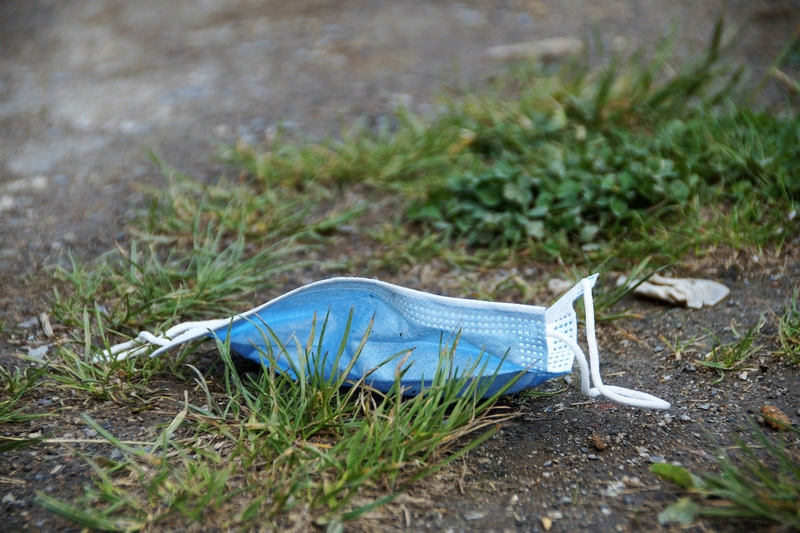
Another of the pillars of the Critical EJ framework is the idea that we are all indispensable (contrary to the prevailing capitalist logic of expendability) and that no one should be left behind in our struggles for environmental justice. A particularly noteworthy illustration of why this is so important is the current use of the language of “essential workers,” which is inherently violent and exclusionary, because it suggests that others are simply surplus, devalued, and dispensable. Even more cynical, we find that millions of “essential workers” are themselves devalued and underpaid as they are placed in harm’s way on the front lines of the pandemic.
One lesson of critical environmental justice and a basic foundation of ecology is that, for better or for worse, the undeniable, inescapable fact is that we are all connected, just as everything in the universe is hitched to everything else. What that means is that we are all family — including and especially Alexandria Estrada and her relative in prison — and we can start behaving as if that were true and build ecologically healthy, democratic, resilient and environmentally just communities, or we can choose the path of “social distancing” and separation. I know which way I’m headed.

